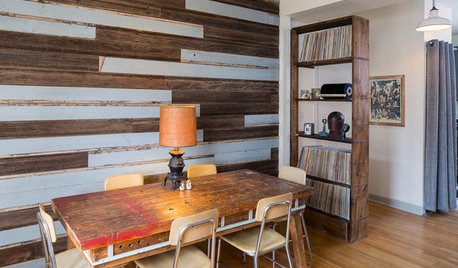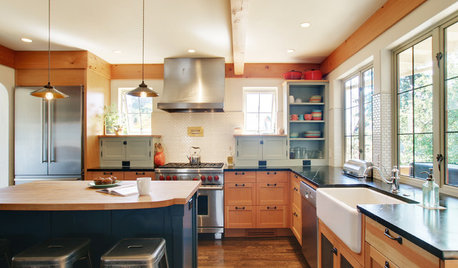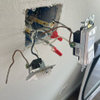Questions about using a generator
swampwiz
14 years ago
Related Stories

HOUZZ TVHouzz TV: Cool Reclaimed Wood Projects Fill a Craftsman’s Home
Using barn wood, beadboard and beams, this homeowner has crafted furnishings and features for his family’s Chicago home
Full Story
Easy Green: 6 Must-Answer Questions Before You Buy
Thinking about buying ecofriendly furniture? For a truly environmentally conscious home, ask yourself these questions first
Full Story
ORGANIZINGPre-Storage Checklist: 10 Questions to Ask Yourself Before You Store
Wait, stop. Do you really need to keep that item you’re about to put into storage?
Full Story
REMODELING GUIDESConsidering a Fixer-Upper? 15 Questions to Ask First
Learn about the hidden costs and treasures of older homes to avoid budget surprises and accidentally tossing valuable features
Full Story
HOUZZ TOURSHouzz Tour: Innovative Home Reunites Generations Under One Roof
Parents build a bright and sunny modern house where they can age in place alongside their 3 grown children and significant others
Full Story
PAINTINGWhat to Know About Milk Paint and Chalk Paint — and How to Use Them
Learn the pros, cons, cost and more for these two easy-to-use paints that are great for giving furniture a vintage look
Full Story
MOST POPULAR8 Questions to Ask Yourself Before Meeting With Your Designer
Thinking in advance about how you use your space will get your first design consultation off to its best start
Full Story
GREEN DECORATING8 Questions to Help You See Through Green Hype
With the ecofriendly bandwagon picking up some dubious passengers, here's how to tell truly green products and services from the imposters
Full Story
FEEL-GOOD HOMEThe Question That Can Make You Love Your Home More
Change your relationship with your house for the better by focusing on the answer to something designers often ask
Full Story
TRADITIONAL HOMESHouzz Tour: Connecticut Farm Restored for Generations to Come
A man renovates his extended family’s stately farmhouse and land. Sustainable practices are used in gardens, wetlands and recreation areas
Full StorySponsored
Industry Leading Interior Designers & Decorators in Franklin County
More Discussions








brickeyee
paulusgnome61
Related Professionals
Aurora General Contractors · Berkeley General Contractors · Dorchester Center General Contractors · Mashpee General Contractors · Mount Laurel General Contractors · Mount Vernon General Contractors · Murrysville General Contractors · Pico Rivera General Contractors · Post Falls General Contractors · Rancho Cordova General Contractors · Salem General Contractors · San Elizario General Contractors · Mokena Solar Energy Systems · Philadelphia Home Automation & Home Media · South Lake Tahoe Home Automation & Home Mediaterribletom
jake2007
wayne440
shadetree_bob
wayne440
swampwizOriginal Author
brickeyee
wayne440
jcthorne
Ron Natalie
stinkytiger
brickeyee
wayne440
stinkytiger
jcthorne
brickeyee
wayne440
brickeyee
wayne440
shadetree_bob
wayne440
shadetree_bob
frank1965
terribletom
jcthorne